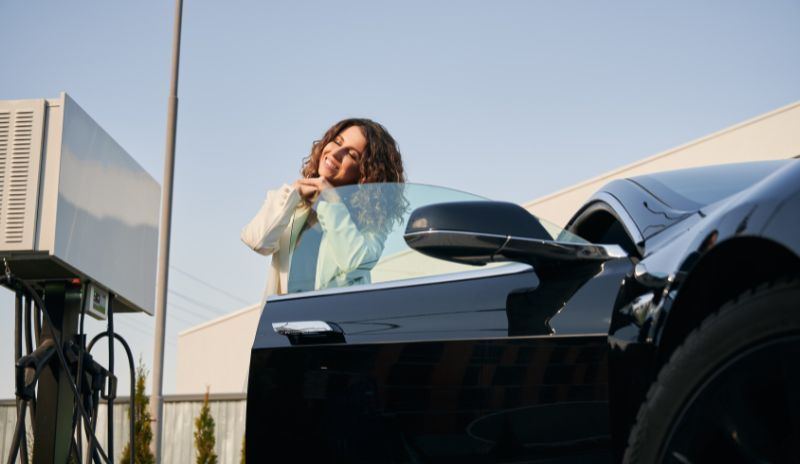What Counts as an Exotic Car? And Why It Matters for Insurance
See How We're Different
or call us: (214) 253-0570
Exotic cars have always been a source of fascination for car enthusiasts and the general public. Their striking designs, exceptional performance, and often high price tags distinguish them from ordinary vehicles. But what exactly makes a car "exotic," and why does this classification matter, especially in terms of insurance? Understanding these elements is vital for car buyers, collectors, and anyone intrigued by luxury automobiles.
Defining Exotic Cars
The term "exotic car" is frequently used without precision, but it generally describes high-performance vehicles that are not mass-produced. These cars usually boast unique designs, cutting-edge technology, and superior engineering. Although there is no universally accepted definition, several traits commonly help to identify an exotic car.
Performance and Engineering
Performance is a key factor that sets exotic cars apart from standard vehicles. Exotic cars often feature powerful engines, advanced aerodynamics, and state-of-the-art technology that enable them to achieve impressive speeds and handling capabilities. Brands like Ferrari, Lamborghini, and Bugatti are synonymous with high performance, often boasting engines that can accelerate from 0 to 60 mph in mere seconds. Additionally, these vehicles frequently incorporate sophisticated suspension systems and lightweight materials, such as carbon fiber, enhancing their agility and responsiveness on the road. This blend of power and precision engineering not only provides thrilling driving experiences but also represents the pinnacle of automotive innovation.
Rarity and Exclusivity
Rarity is a significant aspect of what defines an exotic car. Many exotic cars are produced in limited numbers, making them exclusive and highly desirable. This scarcity not only increases their appeal but also elevates their market value. For example, models like the McLaren P1 or the Pagani Huayra are often produced in quantities that barely reach the hundreds, making them a rare sight on the roads. Furthermore, the exclusivity of these cars is often enhanced by bespoke customization options, allowing owners to personalize their vehicles to an extraordinary degree. This level of individuality not only heightens the allure of owning an exotic car but also fosters a passionate community of collectors and enthusiasts who appreciate the artistry and craftsmanship behind each unique design.
Design and Aesthetics
The design of exotic cars is often a masterpiece, with manufacturers investing significant resources into creating visually stunning vehicles. The use of premium materials, innovative design techniques, and meticulous attention to detail sets these cars apart. From the aerodynamic curves of a Porsche 918 to the aggressive stance of a Lamborghini Aventador, exotic cars are designed to capture attention. Moreover, the aesthetic appeal is not merely superficial; it is intricately linked to the car's performance. The sleek lines and sculptural forms are crafted to optimize airflow and reduce drag, enhancing both speed and stability. Interior designs also reflect a commitment to luxury, featuring high-quality leather, state-of-the-art infotainment systems, and ergonomically designed controls that provide an immersive driving experience. This fusion of form and function exemplifies the dedication of exotic car manufacturers to push the boundaries of automotive design.
Why the Classification Matters
Understanding what qualifies as an exotic car is not just a matter of curiosity; it has practical implications, particularly in the realm of insurance. The classification can significantly affect insurance premiums, coverage options, and overall costs associated with owning such a vehicle.
Insurance Premiums
Insurance companies often categorize vehicles based on their risk factors, and exotic cars typically fall into a higher risk category. This classification can lead to significantly higher premiums compared to standard vehicles. Factors such as the car's value, repair costs, and likelihood of theft all contribute to the increased insurance rates for exotic cars. Additionally, the performance capabilities of these vehicles, which often exceed those of regular cars, can lead to a higher incidence of accidents and claims, further driving up costs.
Coverage Options
Exotic cars often require specialized insurance coverage that goes beyond standard auto insurance policies. Many traditional insurers may not have the expertise to adequately assess the unique needs of exotic vehicles. As a result, owners may need to seek out insurers that specialize in high-value or exotic cars, which can provide tailored coverage options that address the specific risks associated with these vehicles. These specialized policies might include features such as agreed value coverage, which protects the owner’s investment by ensuring that in the event of a total loss, they receive a pre-determined amount rather than the depreciated market value.
Understanding Value Depreciation
Another important aspect of exotic car ownership is understanding how value depreciation works. Unlike standard vehicles, which typically lose value over time, some exotic cars can appreciate in value, especially if they are well-maintained and kept in limited production. Insurance policies that take this into account can be beneficial for owners looking to protect their investment. Furthermore, factors such as rarity, brand reputation, and historical significance can influence an exotic car's market value, making it essential for owners to stay informed about trends in the collector car market. This knowledge not only aids in making informed insurance decisions but also enhances the overall ownership experience, as enthusiasts often take pride in the uniqueness and heritage of their vehicles.
Maintenance and Repair Costs
In addition to insurance considerations, the maintenance and repair costs associated with exotic cars can be significantly higher than those for standard vehicles. Exotic cars often require specialized parts and skilled technicians who are familiar with the intricacies of high-performance engines and advanced technology. Regular servicing can also be more expensive, as many exotic car manufacturers recommend using specific fluids and components that may not be readily available at standard auto shops. Owners should factor these potential costs into their overall budget when considering the purchase of an exotic vehicle, as neglecting maintenance can not only lead to costly repairs but also diminish the car's value over time.
Types of Exotic Cars
Exotic cars can be categorized into various types, each with its own unique characteristics and appeal. Understanding these categories can help potential buyers make informed decisions when considering an exotic vehicle.
Supercars
Supercars are perhaps the most recognized category of exotic cars. These vehicles are known for their extraordinary speed, advanced technology, and high-performance capabilities. Brands like Ferrari, Lamborghini, and McLaren dominate this category, producing cars that are not only fast but also engineered for precision and handling. The Bugatti Chiron, for example, is renowned for its incredible top speed and luxurious features. Supercars often come equipped with powerful engines, lightweight materials, and cutting-edge aerodynamics, allowing them to achieve remarkable acceleration and cornering abilities. Enthusiasts often gather at track days and car shows to admire these engineering marvels, celebrating their design and performance.
Hypercars
Hypercars take the concept of supercars to an even more extreme level. These are the pinnacle of automotive engineering, often featuring groundbreaking technology and performance metrics that push the boundaries of what is possible. Vehicles like the Koenigsegg Agera RS and the Rimac C_Two exemplify this category, showcasing innovations in electric powertrains, aerodynamics, and materials. Hypercars are often produced in limited quantities, making them highly sought after by collectors and enthusiasts alike. The integration of hybrid technology in models such as the Ferrari LaFerrari and Porsche 918 Spyder not only enhances performance but also reflects a growing trend towards sustainability in the automotive industry. These vehicles are not just about speed; they represent the future of automotive innovation.
Luxury Sports Cars
Luxury sports cars blend high performance with opulent features, providing a comfortable and stylish driving experience. Brands such as Aston Martin and Bentley fall into this category, offering vehicles that deliver both speed and luxury. These cars often feature premium interiors, advanced infotainment systems, and a focus on driver comfort, making them ideal for those who enjoy the finer things in life. The craftsmanship involved in creating these vehicles is exceptional, with hand-stitched leather, bespoke finishes, and state-of-the-art sound systems that elevate the driving experience. Additionally, luxury sports cars often come with a plethora of customization options, allowing buyers to tailor their vehicles to their personal tastes and preferences. This combination of performance and luxury makes them a popular choice among those who desire both excitement and elegance on the road.
Factors Influencing Insurance Costs
When it comes to insuring an exotic car, several factors come into play that can influence the overall cost of coverage. Understanding these factors can help owners make informed decisions when selecting an insurance policy.
Vehicle Value
The value of the exotic car is one of the most significant factors affecting insurance premiums. High-value vehicles typically come with higher insurance costs due to the increased risk associated with potential repairs or replacements. Insurers will assess the market value of the car, considering factors such as make, model, and condition to determine the appropriate premium. Additionally, unique features or modifications that enhance the car's performance or aesthetics can further elevate its value, leading to even higher insurance rates. Owners should consider obtaining an appraisal from a qualified expert to ensure their vehicle is accurately valued, which can help in negotiating better insurance terms.
Repair Costs
Exotic cars often require specialized parts and skilled labor for repairs, which can be significantly more expensive than repairs for standard vehicles. Insurance companies take this into account when calculating premiums, as the cost of repairs can greatly impact the insurer's potential payout in the event of a claim. Owners should be aware that even minor accidents can lead to substantial repair bills. Furthermore, the availability of parts can also affect repair costs; for instance, if a car is a limited edition or no longer in production, sourcing parts may take longer and be more costly. This scarcity can lead insurers to raise premiums to cover the increased risk of high repair costs.
Driving Habits and Usage
How an owner plans to use their exotic car can also influence insurance costs. For instance, vehicles that are driven frequently or used for racing may attract higher premiums due to the increased risk of accidents. Conversely, cars that are driven less often or primarily used for leisure may qualify for lower rates. Insurers often ask about driving habits to assess risk accurately. Additionally, the geographical location where the car is primarily driven plays a crucial role; urban areas with higher traffic and accident rates can lead to increased premiums, while rural areas may offer more favorable rates. Owners should also consider the impact of seasonal driving; for example, some may choose to insure their exotic car only during the warmer months when they are more likely to drive it, potentially reducing their overall insurance costs.
Choosing the Right Insurance Policy
Finding the right insurance policy for an exotic car requires careful consideration and research. Owners should look for coverage options that cater specifically to the unique needs of high-value vehicles.
Specialized Insurance Providers
Many traditional insurance companies may not have the expertise or resources to adequately cover exotic cars. As a result, seeking out specialized insurance providers that focus on high-value vehicles is essential. These companies often offer tailored policies that address the unique risks associated with exotic cars, ensuring comprehensive coverage. Additionally, specialized providers may offer unique benefits such as agreed value policies, which guarantee a specific payout in the event of a total loss, rather than relying on depreciated market value. This can provide peace of mind for owners who have invested significantly in their vehicles.
Understanding Coverage Options
Exotic car owners should familiarize themselves with the various coverage options available to them. This includes liability coverage, collision coverage, comprehensive coverage, and agreed value coverage. Each option serves a different purpose, and understanding these can help owners select the best policy for their needs. For instance, collision coverage protects against damages resulting from accidents, while comprehensive coverage safeguards against non-collision-related incidents such as theft, vandalism, or natural disasters. Furthermore, some policies may offer additional perks like roadside assistance or coverage for custom parts and modifications, which are often essential for owners of exotic vehicles.
Reviewing Policy Limits
It is crucial to review policy limits carefully. Exotic cars often require higher coverage limits due to their value and the potential costs associated with repairs or replacements. Owners should ensure that their policy provides adequate coverage to protect their investment, especially in the event of a total loss. It's also important to consider the geographical area where the vehicle will be driven, as urban environments may present different risks compared to rural settings. Additionally, factors such as the car's usage—whether it's a daily driver or a weekend showpiece—can influence the necessary policy limits and coverage options. By taking these factors into account, owners can better tailor their insurance policies to fit their specific circumstances and ensure they are fully protected on the road.
Conclusion
Exotic cars represent more than just a mode of transportation; they embody a passion for engineering, design, and speed. Understanding what qualifies as an exotic car is essential for anyone considering purchasing one, particularly regarding insurance implications. The classification of a vehicle as exotic can significantly impact insurance premiums, coverage options, and overall ownership costs.
By recognizing the defining characteristics of exotic cars, the various types available, and the factors influencing insurance costs, potential owners can make informed decisions. Additionally, selecting the right insurance policy tailored to the unique needs of exotic vehicles is crucial for protecting these valuable investments. In the world of exotic cars, knowledge is not just power; it is essential for ensuring a rewarding ownership experience.




